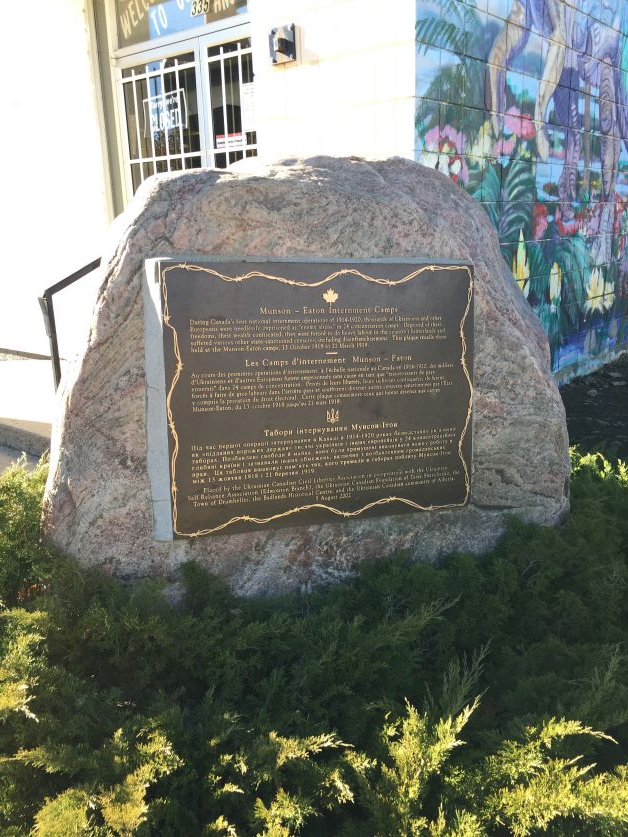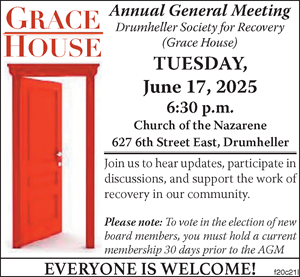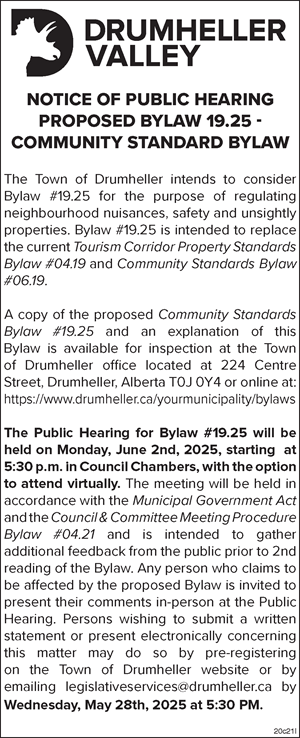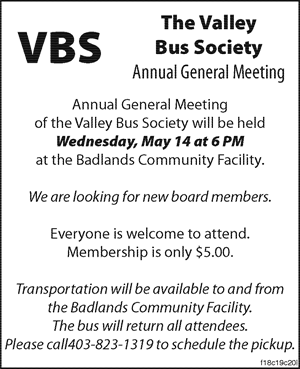
A new documentary that is premiering across the country tells the tragic story of the thousands of Ukrainian men, women, and children during World War I, and a small chapter of that history took place near Munson from October 13, 1918, to March 21, 1919.
Ryan Boyko has written and directed “That Never Happened,” taking on the subject of the internment. The name of the film comes from a conversation he had with a teacher, who, when questioned about the period of history, the teacher responded with what has become the moniker of the movie. His film hopes to tell the story to a wider audience.
“I think it is a pretty incredible opportunity to get this story out to the world. It is a piece of history that was forgotten,” said Boyko. “It was systemically wiped out of history. This year, September 20, this documentary screened at the United Nations and it was the permanent mission of Canada’s official selection as part of the 70th anniversary of the Universal Declaration of Human Rights. That tells us how we have come as a county.”
While thousands were detained, it is true there is very little known about the 24 camps across the country. In fact, the Canadian Government ordered the destruction of records of the internment in 1954. Part of the legacy of these camps is some of the projects the prisoners worked on, such as parts of Banff National park. In Munson, it was the railway.
“There was a Munson line that went from Munson to Eaton, Saskatchewan, just outside of Saskatoon. That was a rail line they were building,” said Bokyo.
A scan of The Drumheller Mail archives reveals only a couple of references to the internment. These were small paragraphs describing the work being done by the prisoners, under the guard of veterans of The Great War.
The Munson camp came into existence at the tail end of the war. About 65 were sent to Munson. They were housed in railway cars and worked on the railway. The Spanish Flu outbreak and disciplinary issues forced the relocation of the camp, and prisoners were moved to The Eaton Internment Camp in Saskatchewan.
There is nothing left in Munson that shows any sign of the camp, even the railway has since been decommissioned and removed. A monument was unveiled at the Badlands Historical Centre in 2002 by the Ukrainian Canadian Civil Liberties Association. The documentary includes archived video of this dedication.
“The British government and the American Government at the time said these are ‘friendly aliens, these are not enemy aliens, they are the King’s subjects and they must be treated as such,’ but the Canadian Government didn’t feel the same,” said Boyko.
The film’s premiere in Calgary was sold out on October 23, the second day of the theatrical release of “That Never Happened.”
He says while Canada has come a long way, today, many of the underlying issues persist.
“One of the things when we started making this documentary, we thought we were creating something from a niche community, it was probably going to play in church basements and have a very short shelf life. The film really took on a life of its own with the international politics that are happening today, the interest, the fact it was systematically wiped out,” he said. “The way it really maps on to social justice, these are major topics being talked about by governments all over the world.”





















